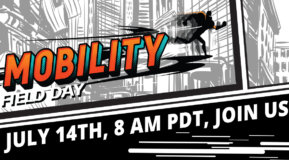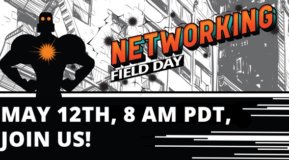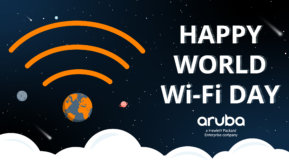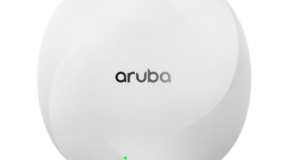Five years ago, François started his own Wi-Fi consultancy to focus exclusively on doing what he loved. With his days full of challenging WLAN deployments and sharing his expertise through training, he urges other network engineers to never stop learning. Francois cohosts the Clear To Send podcast and blogs regularly.
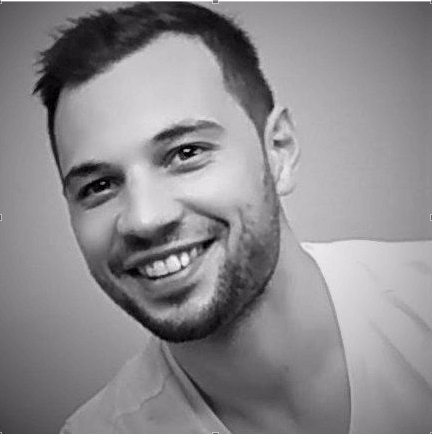 Jamie Easley: How did you get into networking?
Jamie Easley: How did you get into networking?
François Vergès: I’m originally from France. I studied computer science in university, then got a Masters in networking and telecommunications. I moved to Canada and worked as a security engineer. I met another engineer who had a lot of experience in Wi-Fi, and he gave me books and equipment. I found a real passion in Wi-Fi.
Five years ago, I had an opportunity to start my own business as a consultant. It was a perfect opportunity, because my wife wasn’t living where I was and I could start my own company and move with her. Now I divide my time between teaching Wi-Fi to other professionals and doing exciting projects.
Jamie: What do you like about wireless?
François: First, the physics of wireless networking is magical.
Second, when I was a network engineer configuring switches, I sat behind my screen. Now I get to visit different sites, like warehouses, offices, outdoors or convention centers. I wear a hard hat on sometimes.
Jamie: World Wi-Fi Day was in June, which celebrated the 20thyear of Wi-Fi. What is the biggest impact Wi-Fi has had on your life?
François:My career. When I started to work, I worked with other engineers who had their own company, but I never thought I’d be like that. When I started SemFio, I committed to only work on Wi-Fi projects. I can do what I want to do. When you do what you like, you do it well.
Jamie: Are you seeing a shortage of tech workers in Canada? What do you think we can do to encourage more young people to focus on science and technology?
François: We see a lot of demand for tech skills here. To attract more younger people, we need to define the purpose behind the technology. In healthcare, it’s life or death. In tech, we don’t have that equivalent. If your computer crashes, it’s no big deal.
Personally, I try to focus on the purpose behind the project. It allows me to look at technology from a different angle and how I’m helping people.
Jamie: What advice would you offer to someone who is just starting out in networking and security?
François: Learn about the theory. I did that in university in France, and it still helps me today.
Don’t focus too much on any one vendor. Look at the overall technology, and the standards behind it, and then you can better apply that knowledge to each vendor’s product.
Never stop learning. If you stop learning after university, it’s hard to get back in that mindset. Just keep learning. Do the certifications, and keep up your momentum.
Jamie: Why did you become a delegate for Mobility Field Day?
François: This is my first Mobility Field Day, and I’m excited to go. When I started SemFio, I was introduced to the Wi-Fi community, and I followed the event online. I’m looking forward to making connections.
I cohost Clear To Send, a podcast with Rowell Dionicio, a consultant who is in the Bay Area, and I’m hoping to get ideas.
Jamie: There’s a lot of talk in the industry that 5G will replace Wi-Fi. What’s your opinion?
François: 5G won’t replace Wi-Fi. 5G isn’t a single technology; it’s a framework. And Wi-Fi could be part of that framework. How I see it today is that 5G will dominate the cellular space, and Wi-Fi will stay prevalent in the indoor space, especially for enterprises. There’s a use case for 5G to replace Wi-Fi in the home environment if the connection is good enough.
Jamie: There’s a lot of talk in the industry that AI and robots are going to take our jobs. How do you think AI will impact the life of a network engineer or admin?
François: AI will help us detect some issues, be more proactive, and do root-cause analysis. We’re pretty much there now. The second step is having AI do the changes. That would be nice. The third step is using AI for architecture and engineering, and we’re not there yet.
But now, the way engineers interact is through programming and APIs. Our jobs increasingly incorporate a software element, and we’re becoming software network engineers. That’s why this field is exciting. We never stop learning.
Jamie: Jennifer Minella, another #MFD4 delegate, had a question for you. It’s her first time at an event like this, and she wanted to know how you apply the knowledge you learn at MFD?
François: It’s my first time, too, but I look at it from the perspective of a business owner. I want to see the trends, and be able to adapt my marketing and business for the services I offer.
Jamie: Thanks François. Looking forward to Mobility Field Day with you!
Meet the #MFD4 Delegates
Tim Dennehy is ready to ask vendors the hard questions.
Haydn Andrews walked 20 kilometers to do a single site survey.
Jennifer Minella thinks it's time to retire the hacker-in-a-hoodie stereotype.
